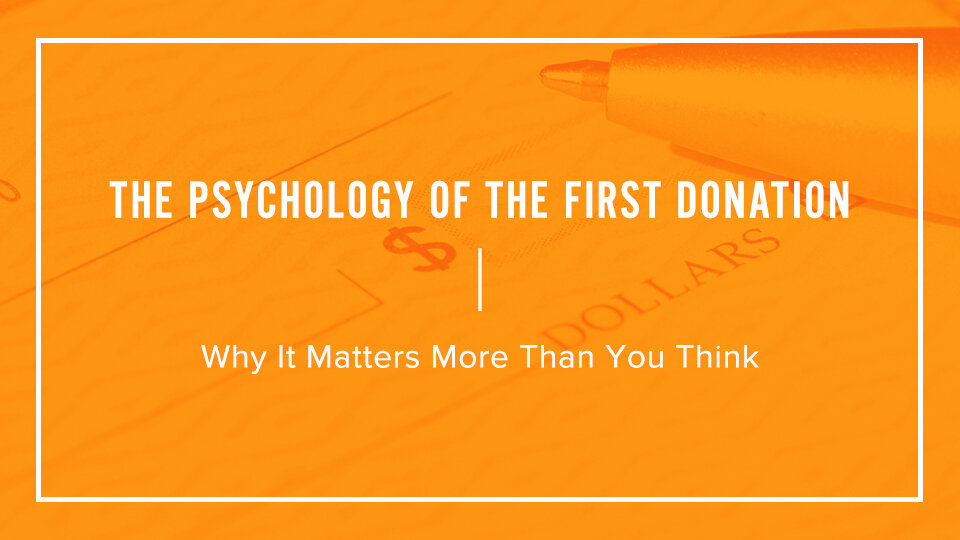The Psychology of the First Donation: Why It Matters More Than You Think
By Maurilio Amorim
Every nonprofit should understand the profound significance of the first donation. But in my three decades of experience with fundraising, not many do.
It's not merely a financial contribution but a pivotal psychological shift where a passive observer becomes an active participant in your mission.
Regardless of the amount, this initial donation is the most crucial step in a donor's journey, underscoring their trust in your organization and the value of your work.
The Mental Shift: From Spectator to Donor
Overcoming Initial Resistance
Securing that first donation is often the most challenging hurdle. Potential donors might have concerns about financial constraints, skepticism about your impact, or a lack of urgency. However, they overcome these barriers once they decide to give up, leading to a significant psychological shift. This act signifies their trust in your organization and belief in your cause.
Activation of Altruism
Human beings are naturally generous. When someone donates, they activate a sense of fulfillment and purpose. This action releases endorphins, creating a "helper's high" that positively reinforces their decision. By contributing, donors feel a sense of belonging and satisfaction, knowing they are part of something larger than themselves.
Commitment and Consistency
According to the psychological principle of commitment and consistency, people strive to act consistently with their past behaviors and commitments. Once donors make their first contribution, they are more likely to continue supporting the cause to maintain consistency with their initial commitment. This underscores the importance of converting first-time donors into regular supporters.
The Importance of the First Donation
Trust and Value
The first donation is the most important because it reflects the donor's trust in your organization and the perceived value of your work. It's not about the amount; it's about the commitment to your mission. This donation signals that the donor believes in what you do and is willing to support it.
Lifetime Value
That first donation is likely the first gift of many. Most donors stay engaged with an organization they give to for years, especially if the nonprofit nurtures them properly.
In my experience, the first donation is only a test to see how the organization acknowledges the gift, communicates with the donor, and continues nurturing the relationship. It's not uncommon for a significant gift to come from a donor who gave a nominal gift as their first donation.
The Ripple Effect of the First Donation
The psychological impact of the first donation extends beyond the individual donor. Their commitment can inspire others in their network to contribute, creating a ripple effect of generosity and support. Social proof, the idea that the actions of others influence people, plays a significant role here.
Highlighting new donors and their reasons for giving can motivate others to follow suit. Understanding the psychology behind the first donation is crucial for nonprofits aiming to convert spectators into lifelong supporters. By recognizing the mental shift that occurs and strategically engaging donors in the short and long term, nonprofits can cultivate a loyal and motivated donor base.
Remember, the first donation is not just a transaction; it's the beginning of a transformative journey for both the donor and the organization. Embrace this journey, and watch your community of supporters grow.
Ultimately, every donor becomes the hero of the unfolding story of your mission. By supporting your cause, they are making a difference, and their journey with your organization can lead to a profound and lasting impact.














